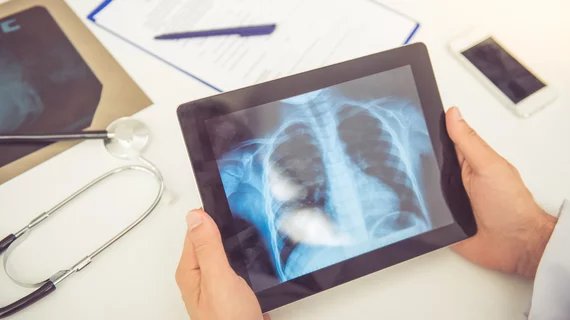3 out of 4 imaging leaders find the UK’s radiologist shortage unsafe for patients
Three out of four imaging leaders in the UK don’t think the National Health Service employs enough radiologists for them to provide “safe and effective patient care,” according to a new report from The Royal College of Radiologists (RCR). Also, 49% of leaders “strongly disagree” their department is staffed to safe levels.
Released Thursday, April 4, the RCR’s Clinical Radiology UK Workforce Census Report 2018 includes feedback from imaging department leaders from all 172 UK health boards and trusts where radiologists are presently employed. Respondents provided their answers between September and December 2018. The survey had a 100% response rate.
Other findings include:
- Three in five consultant vacancies for clinical radiologists have been infilled for at least a year.
- The current radiologist shortfall is 1,104, though that could rise to 1,867 by 2023.
- Demand for imaging examinations such as CT and MRI scans went up 10% each year over the last five years.
“Diagnostic and interventional radiology is fundamental to modern healthcare, from getting a fast, accurate diagnosis to planning surgery to cancer care and trauma management,” Mark Callaway, the RCR’s medical director of professional practice for clinical radiology and the report’s lead author, said in a prepared statement. “The UK-wide shortage of radiologists is not news to the RCR, but service leaders are now telling us loud and clear that staff shortages are putting patients at risk, with three-quarters saying they cannot guarantee a safe service.”

